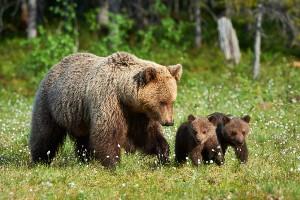- Free 30-Minute Consultation: (303) 228-2270 Tap Here to Call Us
What Do You Need to Know about Poaching?

Both Wyoming and Colorado have strict laws regulating hunting certain game and wildlife. Hunting is an important part of the cultures and economies of both states, but the only way for this to continue is to limit certain aspects of the sport, including poaching.
A conviction for hunting crimes in Colorado and Wyoming carries serious consequences.
These include:
- Jail
- Fines
- Restitution
What do you need to know about poaching?
Anyone hunting for small game, trophy game, or fishing in Colorado or Wyoming must have the appropriate license. Hunters must adhere to seasonal regulations and limit the methods they use to harvest wildlife. There are also requirements regarding hunting safety and coupons proving the lawful harvesting of an animal.
Any violation of these rules, including hunting without permission or the authority to do so, is poaching.
Wyoming Poaching Laws and Punishments
The consequences of poaching in Wyoming vary based on the specific law violated, the offender’s criminal history, and the animal in question.
Fines for illegal hunting range from $1000 to $10,000 and a maximum of one year in jail. The severest penalties apply to the killing of big game, trophy animals, and gray wolves. Other animals that receive greater protection under the state’s laws include:
- Black and Grizzly bears
- Mountain lions and goats
- Horned antelope
- Antlered moose, deer, and elk
- Bighorn sheep
Hunting these animals is a misdemeanor, but fines range from $5000 to $10,000 and a year in jail.
Hunters might also be ordered to pay restitution for each animal killed.
Poaching becomes a felony when a person acquires three convictions for killing any of the above-listed animals in a decade. Fines for felony poaching range from $5000 to $10,000 and up to two years in prison.
What If I’m Attacked?
One of the most common ways someone could face charges for poaching when they did not intend to kill an animal on the protected list is during an attack. The protected animals are all capable of seriously injuring or killing a human being. But defending yourself during an attack could get you into trouble.
Colorado has implemented forensic science practices to help sort out claims of an attack from poaching. The state uses DNA analysis to confirm an animal’s involvement in an attack.
If there are questions about an incident, officials submit the animal’s DNA to a specific lab for analysis. The evidence from the DNA analysis, as well as other evidence discovered at the scene of the animal’s killing, is used by US Fish and Wildlife Services, as well as the Colorado Bureau of Investigation to determine if a crime was committed.
The information provided by the analysis has helped officials sort through the more than 50,000 wildlife violations in the state over the last 10 years.
Working with a Colorado and Wyoming Poaching Defense Lawyer
Anyone accused of poaching in Colorado or Wyoming must contact an attorney who has experience with poaching laws. A poaching conviction can result in the suspension of your license, high fines, jail time, and other penalties. In addition to interfering with your future opportunities to hunt, a conviction can affect your ability to get a job or obtain a professional license.
If you’ve been accused of poaching, contact Wyoming and Colorado poaching defense attorney David Lindsey to schedule a free consultation.





